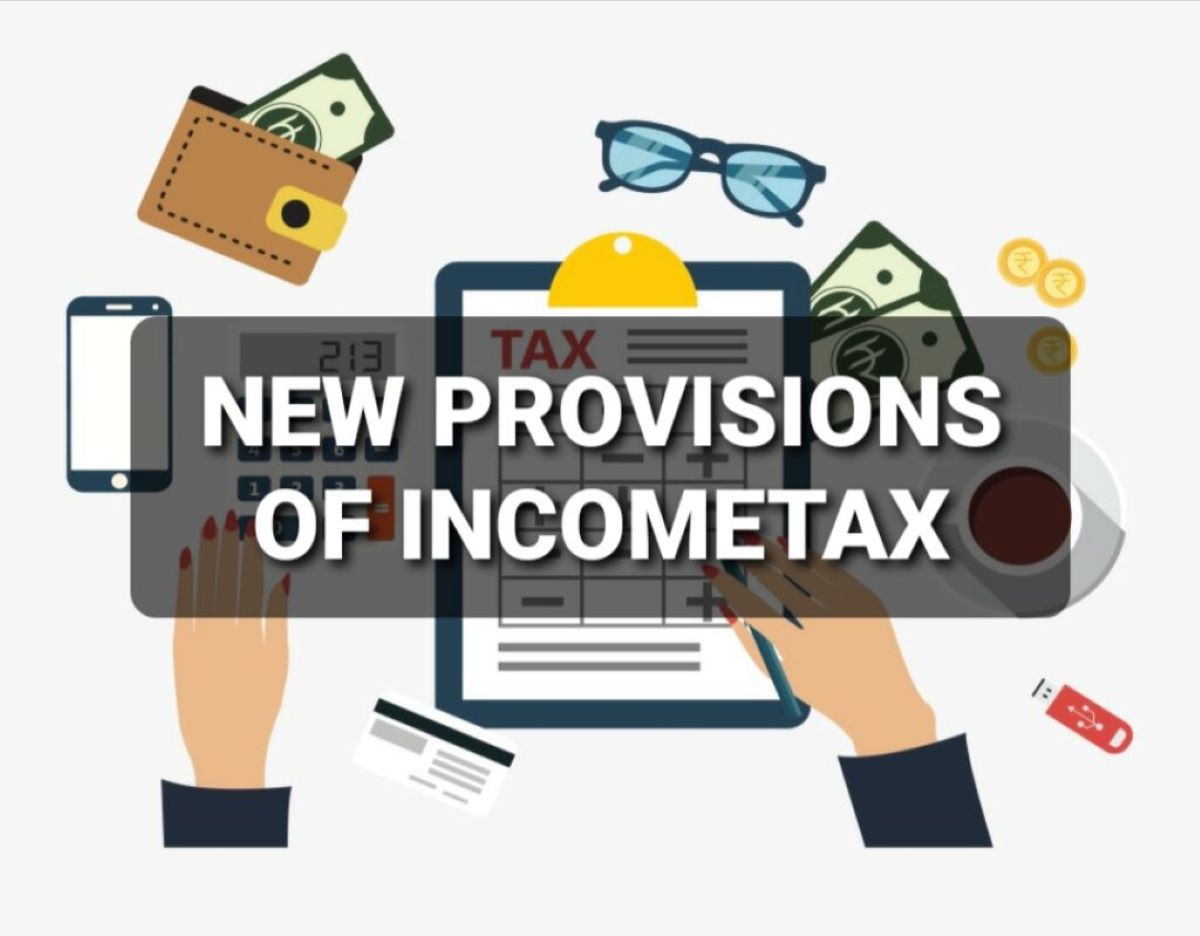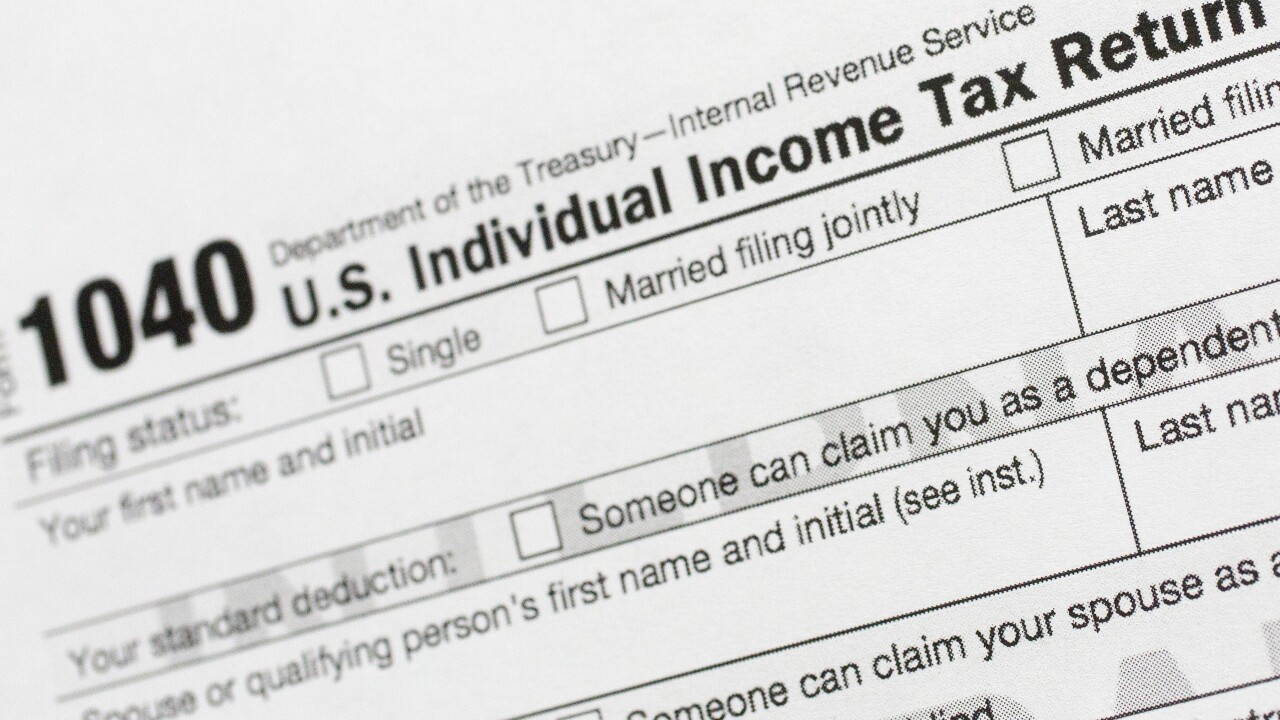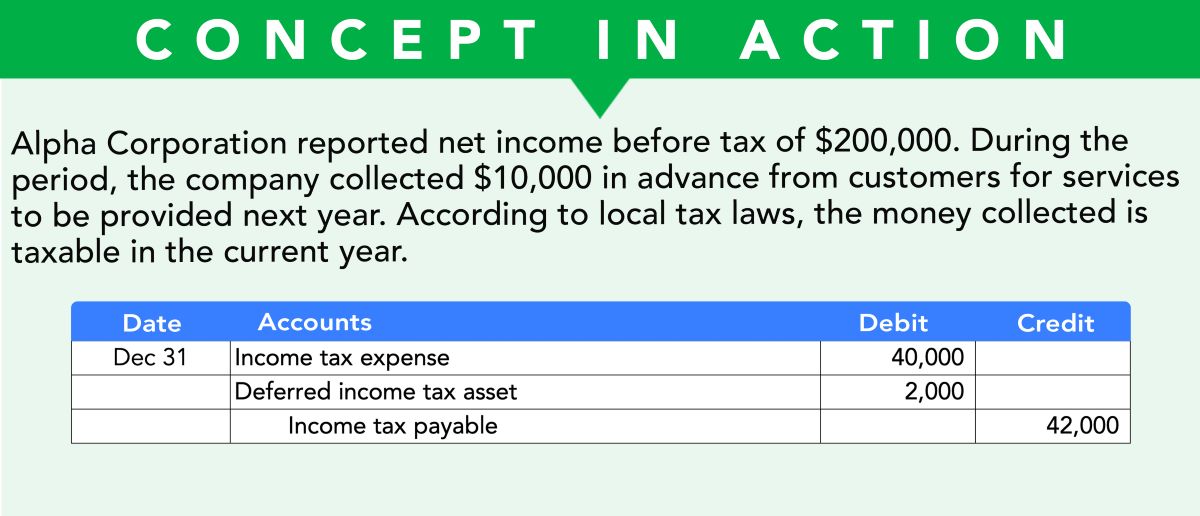

Finance
What Is A Fiduciary Income Tax Return?
Modified: February 21, 2024
Learn what a fiduciary income tax return is and how it applies to your finances. Gain insight into the responsibilities and requirements involved in filing a fiduciary income tax return.
(Many of the links in this article redirect to a specific reviewed product. Your purchase of these products through affiliate links helps to generate commission for LiveWell, at no extra cost. Learn more)
Table of Contents
- Introduction
- Definition of a Fiduciary Income Tax Return
- Purpose of Filing a Fiduciary Income Tax Return
- Who Is Required to File a Fiduciary Income Tax Return?
- Types of Income Reported on a Fiduciary Income Tax Return
- Deductions and Credits for Fiduciary Income Tax Returns
- Deadlines and Filing Requirements for Fiduciary Income Tax Returns
- Penalties for Late or Incorrect Filing of Fiduciary Income Tax Returns
- Conclusion
Introduction
When it comes to taxation, there are various types of tax returns that individuals and entities must file. One such type is the fiduciary income tax return. Understanding what a fiduciary income tax return entails is crucial for individuals who are responsible for managing and distributing income from trusts, estates, or other types of entities.
A fiduciary income tax return is a tax form that must be filed by a fiduciary, who is a person or entity that holds a legal or ethical relationship of trust and responsibility towards another party. This return is specifically designed to report and calculate the taxable income of these fiduciaries, such as trustees, executors, administrators, or guardians, who handle the financial affairs of others.
The purpose of the fiduciary income tax return is to ensure that the income generated by the trust, estate, or entity is properly reported and taxed at the appropriate rate. By filing this return, the fiduciary provides transparency and accountability for the income and expenses associated with the entity they are responsible for.
The Internal Revenue Service (IRS) is the governing body that oversees the filing and compliance of fiduciary income tax returns. They have established specific guidelines and requirements that must be followed to ensure accurate reporting and avoid penalties or fines.
In the following sections, we will delve deeper into the definition, purpose, filing requirements, and penalties associated with fiduciary income tax returns. By understanding these key aspects, individuals and entities can navigate the taxation process more effectively and maintain compliance with the IRS.
Definition of a Fiduciary Income Tax Return
A fiduciary income tax return is a tax form that is used to report the income of a trust, estate, or other entities that have been legally designated as fiduciaries. The fiduciary, who is responsible for managing and distributing the income from these entities, must file this return to report the taxable income and calculate the tax liability.
Unlike individual or corporate income tax returns, which are filed by individuals or businesses, respectively, fiduciary income tax returns are specifically designed for fiduciaries who hold a legal or ethical relationship of trust and responsibility towards another party.
The fiduciary, such as a trustee, executor, administrator, or guardian, acts on behalf of the beneficiaries or owners of the trust, estate, or entity. They are legally obligated to manage the assets, investments, and finances of the entity in the best interest of those beneficiaries. As part of their duties, fiduciaries must also ensure that the income generated by the entity is properly reported to the IRS and taxed accordingly.
On the fiduciary income tax return, the fiduciary must provide detailed information about the income earned by the trust, estate, or entity, as well as any deductions, credits, or exemptions that may apply. The return calculates the taxable income by subtracting allowable deductions and applying the appropriate tax rates.
The fiduciary income tax return also serves as a means of transparency and accountability, as it provides the IRS with information about the financial transactions and activities of the entity. Through the filing of this return, the IRS can ensure that the income is reported accurately and that the appropriate taxes are paid.
It is important to note that a fiduciary income tax return is separate from any individual or personal income tax returns that the fiduciary may also be required to file. The fiduciary is responsible for fulfilling their tax obligations both as an individual and as a fiduciary of the entity.
By understanding the definition and purpose of a fiduciary income tax return, fiduciaries can fulfill their legal obligations and ensure compliance with the IRS regulations regarding the taxation of trust, estate, or entity income.
Purpose of Filing a Fiduciary Income Tax Return
The purpose of filing a fiduciary income tax return is to report and calculate the taxable income of a trust, estate, or other entities that are under the control and responsibility of a fiduciary. The ultimate goal is to ensure that these entities fulfill their tax obligations and are taxed at the appropriate rate.
One of the primary purposes of filing a fiduciary income tax return is to provide transparency and accountability for the income and expenses associated with the trust, estate, or entity. By filing this return, the fiduciary provides a comprehensive overview of the financial activities and transactions that have taken place within the entity during the tax year.
The fiduciary income tax return is essential for accurately reporting the income generated by the entity. This could include income from investments, rental properties, interest, dividends, and any other sources of revenue. By reporting this income, the fiduciary ensures compliance with IRS regulations and helps to prevent underreporting of taxable income.
Additionally, the fiduciary income tax return allows the fiduciary to claim any deductions, credits, or exemptions that may be applicable. This includes expenses related to the administration and maintenance of the entity, as well as any losses incurred during the tax year. These deductions can help to reduce the taxable income and, in turn, the overall tax liability.
Another important purpose of filing a fiduciary income tax return is to determine the tax liability of the entity and ensure that the appropriate amount of taxes are paid to the IRS. The return calculates the taxable income by subtracting allowable deductions from the total income. The tax liability is then determined by applying the relevant tax rates and brackets.
Filing a fiduciary income tax return provides the IRS with the necessary information to assess and collect the taxes owed by the entity. It helps to maintain the integrity of the tax system and ensures that the entity is fulfilling its obligations in terms of reporting and paying its fair share of taxes.
By fulfilling their responsibility of filing a fiduciary income tax return, fiduciaries contribute to the overall stability and fairness of the tax system. They help to uphold the principles of transparency, accountability, and compliance with IRS regulations, which are vital for maintaining a functioning and equitable tax system.
Who Is Required to File a Fiduciary Income Tax Return?
Filing a fiduciary income tax return is a requirement for certain individuals or entities that serve as fiduciaries and are responsible for managing and distributing income from trusts, estates, or other types of entities. The decision to file a fiduciary income tax return depends on various factors, including the type and amount of income generated by the entity and the specific IRS regulations applicable to the situation.
Generally, a fiduciary is required to file a fiduciary income tax return if the entity they are responsible for generated gross income of $600 or more during the tax year. However, there are some exceptions and additional criteria that determine who must file this return.
Trusts: In the case of trusts, a fiduciary income tax return is required if the trust has any taxable income, regardless of the amount. This applies to both simple trusts and complex trusts. Simple trusts are those that distribute all of their income to beneficiaries annually, while complex trusts retain some or all of their income or make distributions in a manner other than annually.
Estates: For estates, a fiduciary income tax return must be filed if the gross income exceeds $600 for the tax year. This includes income from assets of the estate, such as interest, dividends, rental income, or business income.
Decedent’s Final Return: In addition to the fiduciary income tax return for the estate, a separate final income tax return is required for the deceased individual. This return covers their income and deductions up until the date of death.
Other Fiduciaries: Apart from trusts and estates, other entities that are managed by fiduciaries, such as guardianships or receiverships, may also be required to file a fiduciary income tax return. The determination of the filing requirement depends on the specific circumstances and IRS guidelines that apply to these types of entities.
It’s important to note that even if a fiduciary is not required to file a fiduciary income tax return based on the income threshold, they may still choose to file the return voluntarily. This can be advantageous in certain situations, such as when the entity has deductions and credits that can reduce the tax liability or when it is necessary to provide transparency and accountability for the financial activities of the entity.
Ultimately, determining whether or not a fiduciary must file a fiduciary income tax return depends on the specific circumstances of the trust, estate, or entity they are responsible for managing. Consulting with a tax professional or referring to the IRS guidelines can help ensure compliance with the filing requirements and avoid any potential penalties or consequences.
Types of Income Reported on a Fiduciary Income Tax Return
A fiduciary income tax return requires reporting various types of income generated by the trust, estate, or entity for which the fiduciary is responsible. This income should be accurately reported to the Internal Revenue Service (IRS) to ensure compliance with tax regulations. Here are some common types of income that are typically reported on a fiduciary income tax return:
1. Interest Income: This includes any interest earned through investments or bank accounts held by the trust, estate, or entity. Examples include interest earned on certificates of deposit (CDs), bonds, or savings accounts.
2. Dividend Income: Dividends received from stocks or mutual funds are considered taxable income. The fiduciary must report any dividends earned by the trust, estate, or entity to the IRS.
3. Rental Income: If the trust, estate, or entity owns rental properties, the rental income received must be reported. This can include income from residential properties, commercial spaces, or other real estate holdings.
4. Business Income: If the trust, estate, or entity operates a business, any income generated from that business must be reported. This includes income from sales, services rendered, or any other business-related activities.
5. Capital Gains: If the trust, estate, or entity sells an asset, such as stocks, real estate, or artwork, and realizes a profit, this is considered a capital gain. The fiduciary must report the capital gains on the tax return.
6. Royalties: If the trust, estate, or entity has entered into licensing agreements or owns intellectual property rights, any royalties received must be reported as income.
7. Trust Distributions: If the trust, estate, or entity distributes income to beneficiaries, those distributions are considered taxable income. The fiduciary must report the amount of each distribution made to beneficiaries.
8. Annuity Payments: If the trust, estate, or entity receives annuity payments, whether from an insurance policy or other sources, these payments are typically considered taxable income and must be reported.
9. Retirement Account Withdrawals: If the trust, estate, or entity withdraws funds from retirement accounts, such as IRAs or 401(k)s, these withdrawals are considered taxable income and must be reported on the fiduciary income tax return.
10. Other Sources of Income: Any additional sources of income, such as alimony payments, scholarships, or other types of financial gains, must also be reported on the fiduciary income tax return.
When completing the fiduciary income tax return, it is crucial to accurately report all income sources and ensure compliance with IRS guidelines. Failure to report taxable income can result in penalties and potential legal implications. Consulting with a tax professional or utilizing tax software designed for fiduciary income tax returns can help ensure accurate reporting.
Deductions and Credits for Fiduciary Income Tax Returns
Just like individual and corporate income tax returns, fiduciary income tax returns also allow for deductions and credits to help reduce the overall tax liability of the entity. These deductions and credits can be valuable in minimizing the tax burden of the trust, estate, or other entity for which the fiduciary is responsible. Here are some common deductions and credits that may be applicable to fiduciary income tax returns:
1. Administrative Expenses: Fiduciaries can deduct reasonable administrative expenses incurred in the management and operation of the entity. This includes expenses such as accounting fees, legal fees, trustee fees, and costs associated with maintaining and safeguarding the assets of the entity.
2. Interest, Taxes, and Insurance: Fiduciaries can deduct interest paid on loans or mortgages related to the entity’s property, property taxes paid, and insurance premiums that are necessary for the operation and maintenance of the entity.
3. Charitable Deductions: If the trust, estate, or entity makes qualifying charitable contributions, the fiduciary may be eligible to claim deductions for these donations. It is important to ensure that the contributions meet the IRS guidelines for deductibility.
4. Losses: Fiduciaries can deduct losses incurred by the entity, such as investment losses, casualty or theft losses, or business losses. These losses can help offset the taxable income and reduce the overall tax liability.
5. Income Distribution Deduction: If the trust, estate, or entity distributes income to beneficiaries, the fiduciary may be able to claim a deduction for the amount distributed. This deduction helps to reduce the taxable income of the entity.
6. Alternative Minimum Tax (AMT) Credits: In some cases, fiduciaries may be eligible for AMT credits, which can help offset the alternative minimum tax liability of the entity. These credits are designed to prevent certain entities from being subject to excessive taxation.
7. Foreign Tax Credits: If the trust, estate, or entity has paid foreign taxes on income earned from sources outside of the United States, the fiduciary may be eligible for foreign tax credits. These credits help mitigate the impact of double taxation on international income.
8. Education Credits: If the trust, estate, or entity paid for eligible education expenses for beneficiaries, the fiduciary may be eligible to claim education credits, such as the American Opportunity Credit or the Lifetime Learning Credit.
9. Estimated Tax Payments: Fiduciaries can take into account any estimated tax payments made during the tax year, which can help reduce the overall tax liability of the entity.
It is important for fiduciaries to carefully review the IRS guidelines and consult with a tax professional to determine the specific deductions and credits that are applicable to their fiduciary income tax returns. By utilizing these deductions and credits effectively, fiduciaries can help minimize the tax burden on the trust, estate, or entity they are responsible for managing.
Deadlines and Filing Requirements for Fiduciary Income Tax Returns
Filing a fiduciary income tax return requires adhering to specific deadlines and meeting certain filing requirements. It is important for fiduciaries to understand these requirements to ensure compliance and avoid penalties. Here are the key deadlines and filing requirements for fiduciary income tax returns:
1. Filing Deadline: The deadline for filing a fiduciary income tax return is typically the 15th day of the 4th month following the close of the tax year. For example, if the tax year ends on December 31st, the filing deadline would be April 15th of the following year. However, if the fiduciary operates on a fiscal year basis, the filing deadline is the 15th day of the 4th month following the close of the fiscal year.
2. Extension of Time: Fiduciaries have the option to request an extension of time to file their fiduciary income tax return. This can be achieved by filing Form 7004, Application for Automatic Extension of Time to File Certain Business Income Tax, Information, and Other Returns, by the original filing deadline. The extension grants an additional 5-1/2 months, extending the filing deadline to September 30th for calendar-year filers.
3. Estimated Tax Payments: Fiduciaries are required to make estimated tax payments throughout the tax year if the expected tax liability will be $1,000 or more. These payments are typically made using Form 1041-ES, Estimated Income Tax for Estates and Trusts, and should be made in four equal installments on the 15th day of the 4th, 6th, and 9th months of the tax year, and on the 1st day of the following year.
4. Filing Requirements: Fiduciaries are required to file Form 1041, U.S. Income Tax Return for Estates and Trusts, to report the income, deductions, and tax liability of the trust, estate, or entity. The form must be complete and accurate, providing all necessary information about the entity’s finances.
5. Reporting Income and Deductions: Fiduciaries must accurately report all sources of income earned by the trust, estate, or entity on the fiduciary income tax return. This includes interest income, dividend income, rental income, business income, and any other types of income earned during the tax year. Deductions and credits must also be properly documented and reported to reduce the tax liability.
6. Supporting Documentation: Fiduciaries must maintain proper records and supporting documentation for all income, deductions, and credits reported on the fiduciary income tax return. This includes bank statements, receipts, invoices, and any other relevant financial documentation.
7. Signatures: The fiduciary income tax return must be signed by the fiduciary or their authorized representative. If the fiduciary is unable to sign, a valid power of attorney must be included with the return.
8. Electronic Filing: Fiduciaries have the option to electronically file their fiduciary income tax return using approved tax software. Electronic filing offers convenience, faster processing, and reduces the risk of errors commonly associated with paper filing.
It is crucial for fiduciaries to adhere to these deadlines and filing requirements to ensure compliance with IRS regulations. Late or inaccurate filings can result in penalties, interest, and potential legal implications. Working with a tax professional or utilizing tax software designed for fiduciary income tax returns can help ensure timely and accurate filing.
Penalties for Late or Incorrect Filing of Fiduciary Income Tax Returns
Filing a fiduciary income tax return late or submitting an incorrect or incomplete return can result in various penalties and consequences. It is important for fiduciaries to understand these penalties to ensure timely and accurate filing. Here are the potential penalties for late or incorrect filing of fiduciary income tax returns:
1. Late Filing Penalty: If a fiduciary fails to file the fiduciary income tax return by the deadline, they may be subject to a late filing penalty. The penalty is usually assessed based on the amount of tax owed and is calculated as a percentage of the unpaid tax for each month or partial month that the return is late. The maximum penalty can reach up to 25% of the unpaid tax.
2. Late Payment Penalty: If the fiduciary fails to pay the tax owed by the filing deadline, they may be subject to a late payment penalty. This penalty is also calculated as a percentage of the unpaid tax and accrues for each month or partial month that the tax remains unpaid. The maximum penalty can reach up to 25% of the unpaid tax.
3. Accuracy-Related Penalty: If the IRS determines that the fiduciary has made significant errors or inaccuracies on the fiduciary income tax return, they may impose an accuracy-related penalty. This penalty is assessed as a percentage of the underpayment of tax resulting from the error or inaccuracy. The penalty rate varies depending on the nature and severity of the error.
4. Failure to Pay Estimated Tax Penalty: Fiduciaries who are required to make estimated tax payments throughout the tax year but fail to do so or underpay the required amount may be subject to a failure to pay estimated tax penalty. This penalty is calculated based on the shortfall in estimated tax payments and can vary in rate based on the duration and extent of the underpayment.
5. Interest Charges: In addition to the penalties mentioned above, fiduciaries are also subject to interest charges on any unpaid tax. These interest charges accrue from the original due date of the tax return until the tax is paid in full. The interest rate is determined by the IRS and is subject to change.
6. Criminal Penalties: In cases of intentional tax evasion or fraud, fiduciaries may face criminal penalties, including fines and potential imprisonment. These penalties are reserved for severe cases of tax noncompliance and are typically pursued when there is evidence of deliberate and willful attempts to evade taxes.
To avoid these penalties, fiduciaries should strive for accurate, complete, and timely filing of the fiduciary income tax return. Consulting with a tax professional and utilizing tax software can help ensure compliance with IRS regulations and reduce the risk of errors or omissions that may trigger penalties or interest charges.
It is important for fiduciaries to be aware of the potential penalties associated with late or incorrect filing to ensure compliance with tax laws and regulations. By fulfilling their filing obligations in a timely and accurate manner, fiduciaries can avoid unnecessary penalties and maintain a good standing with the IRS.
Conclusion
Filing a fiduciary income tax return is a crucial responsibility for fiduciaries managing the income of trusts, estates, or other entities. Understanding the definition, purpose, and requirements of these tax returns is essential for maintaining compliance with IRS regulations and ensuring accurate reporting of income, deductions, and credits.
A fiduciary income tax return allows fiduciaries to provide transparency and accountability for the income and expenses associated with the entity they oversee. By accurately reporting and calculating the taxable income, fiduciaries contribute to the integrity of the tax system and help ensure that the trust, estate, or entity fulfills its tax obligations.
Fiduciaries must be aware of the types of income that need to be reported on the fiduciary income tax return, including interest income, dividends, rental income, business income, capital gains, and more. Additionally, understanding the potential deductions and credits available, such as administrative expenses, charitable deductions, and education credits, can help minimize the tax liability of the entity.
Adhering to the deadlines and filing requirements for fiduciary income tax returns is crucial to avoid penalties and consequences. Fiduciaries must file the return by the designated deadline and accurately complete the required forms. Failure to do so can result in penalties for late filing, late payment, inaccuracies, or failure to pay estimated tax.
By fulfilling their tax obligations and staying compliant with IRS guidelines, fiduciaries not only fulfill their legal responsibilities but also contribute to the stability and fairness of the tax system. Proper record-keeping, consultation with tax professionals, and the use of tax software designed for fiduciary income tax returns can help ensure accurate filing and reduce the risk of errors or omissions.
In conclusion, understanding and fulfilling the requirements of fiduciary income tax returns is vital for fiduciaries entrusted with managing the income of trusts, estates, or other entities. By doing so, fiduciaries uphold their fiduciary duties and contribute to the proper functioning of the tax system. Keeping abreast of the IRS guidelines and seeking professional advice will enable fiduciaries to navigate the tax filing process with confidence and ensure compliance with tax laws and regulations.














